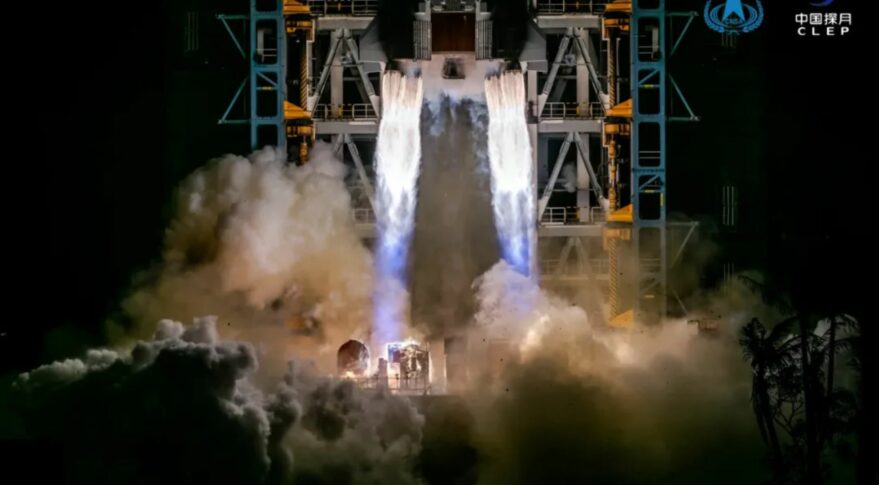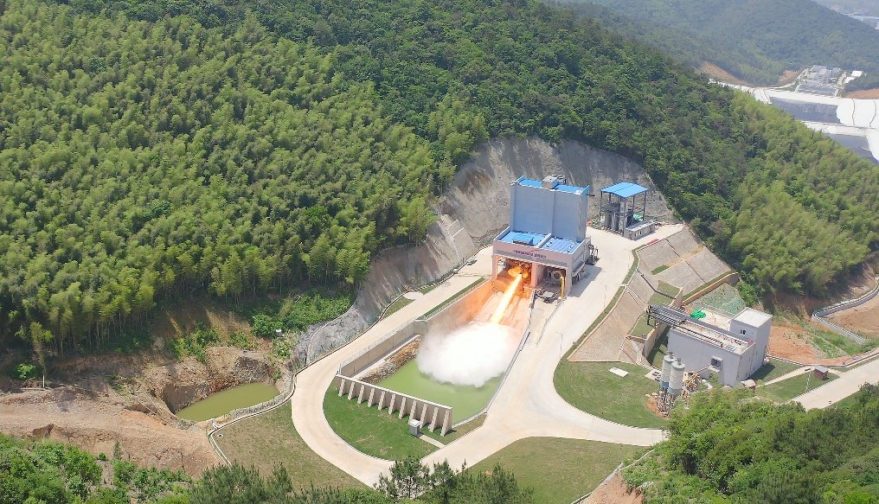China’s CASC targets more than 40 space launches in 2021
China’s CASC targets more than 40 space launches in 2021

HELSINKI — China’s main space contractor aims to conduct more than 40 orbital launches in 2021, including launching a space station module and human spaceflight missions.
The China Aerospace Science and Technology Corporation (CASC) announced the target at a meeting Jan. 4, in a work report outlining major tasks for 2021. China launched 39 times last year, continuing the accelerated launch rate of the past few years.
A terse summary of the report in a CASC press release (Chinese) stated that missions related to the Chinese Space Station complex would be among the planned 40-plus launches.
Recent reports state that the space station core module will be launched in the coming months, followed by the Tianzhou-2 cargo vessel and Shenzhou-12 crewed missions.
The missions will require Long March 5B and Long March 7 launches from Wenchang and a Long March 2F launch from Jiuquan in the Gobi Desert.
Other major highlighted activities include the Tianwen-1 Mars spacecraft, which is due to enter Mars orbit around Feb. 10 with a rover landing attempt to follow in May.
Development work will focus on the two experiment modules for the Chinese Space Station and, notably, crewed lunar exploration. No further details on the latter were provided but earlier indications are available.
The report also states CASC will also focus on accelerating the application of major national scientific and technological projects such as the Beidou satellite navigation system in civil aviation and other fields.
No detailed launch manifest was included in the release. The timing and nature of the vast majority of missions will remain concealed until close to or after launch.
Civilian missions are expected to include Fengyun weather satellites, a New Generation Recoverable Satellite and Gaofen Earth observation satellites. Classified launches of Yaogan remote sensing satellites for reconnaissance and other designations of national defense satellites are likely.
Other launches could include Hainan-1 and Satellogic commercial remote sensing satellites.
Past and future CASC activities
In 2020 China conducted 39 launches with CASC responsible for 34 of these, making it the most active launch provider globally, ahead of SpaceX with 25.
These included launches of the Long March 5B, as a test for space station launches and a prototype new generation crew spacecraft, the Long March 8 medium-lift launcher, Tianwen-1 Mars mission as China’s first independent interplanetary mission, and the Chang’e-5 lunar sample return.
China is entering a new, 14th Five Year Plan period with further details of space plans for 2021-2025 likely to follow during annual parliamentary sessions in March. A space white paper, outlining policy positions, future goals and highlighting recent achievements, is expected late in the year.
CASC chairman Wu Yansheng emphasized that the group will “closely unite around the Party Central Committee with Comrade Xi Jinping at the core,” in a typical reiteration of adherence to the tenets and leadership of the ruling Communist Party of China.
CASC also stated it had over the past five years had focused on “guaranteed success with high quality, completing tasks efficiently, and promoting the construction of aerospace power and national defense with high efficiency.”
Additional commercial launch activities
The CASC target of more than 40 launches does not include new Chinese space actors. Expace, a commercial spin-off from CASIC, another state-owned defense conglomerate, is expected to launch multiple Kuaizhou solid rockets.
Landspace, a Beijing startup, aims to hold a test flight of its Zhuque-2 methane-liquid oxygen launch vehicle, while fellow privately-funded outfits iSpace and Galactic Energy are expected to follow up launches of successful orbital missions using their respective solid light-lift launchers.
Beijing-based iSpace will also carry out hop tests of its own methalox launcher, while Deep Blue Aerospace and CAS Space (Beijing Zhongke Aerospace), a Chinese Academy of Sciences spin-off, could also carry out hop tests and orbital launch attempts respectively.

Comments
Post a Comment